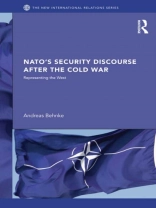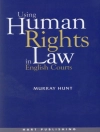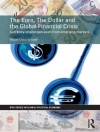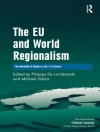This book analyses the way in which the North Atlantic Treaty Organisation (NATO) defines the West after the end of the Cold War and the demise of its constitutive ‘Other’, the Soviet Union.The book offers a theoretical critique of liberal approaches to security, and focuses on NATO’s construction of four geo-cultural spaces that are the sites of particular dangers or threats, which cause these spaces to be defined as the ‘enemy’ of the West. While this forges a collective Western identity, effectively achieved in the 1990s, the book also includes an analysis of NATO’s involvement in the War on Terror – an involvement in which the Alliance fails to define a coherent West, thereby undermining the very source of its long-standing political cohesion. Contributing to theoretical development within Critical Security Studies, Behnke draws on a variety of approaches to provide an analytical framework that examines the political as well as philosophical problems associated with NATO’s performance of security and identity, concluding that in the modern era of globalized, non-territorialized threats and dangers, NATO’s traditional spatial understanding of security is no longer effective given the new dynamics of Western security.NATO’s Security Discourse after the Cold War will be of great interest to students and researchers of International Relations, Critical Security Studies and International Organizations.
Andreas Behnke
NATO’s Security Discourse after the Cold War [EPUB ebook]
Representing the West
NATO’s Security Discourse after the Cold War [EPUB ebook]
Representing the West
Mua cuốn sách điện tử này và nhận thêm 1 cuốn MIỄN PHÍ!
Ngôn ngữ Anh ● định dạng EPUB ● Trang 248 ● ISBN 9781136269202 ● Nhà xuất bản Taylor and Francis ● Được phát hành 2012 ● Có thể tải xuống 6 lần ● Tiền tệ EUR ● TÔI 2527580 ● Sao chép bảo vệ Adobe DRM
Yêu cầu trình đọc ebook có khả năng DRM












